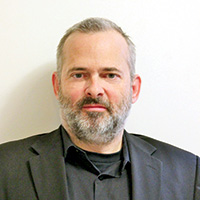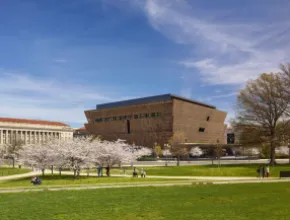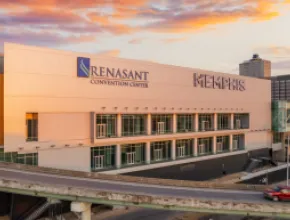As Canadian Business reported last year, Toronto “has become the undisputed capital of Canadian innovation, with more than 600 start-ups, the country’s largest cluster of universities and colleges pumping out research, and the deepest venture capital pockets in the land.”
Ranked eighth in the world by research firm Startup Genome, the Toronto region’s “startup ecosystem” is fertile turf indeed. Among the hotbeds: student-focused incubator and accelerator programs at the University of Toronto, the Canadian Film Centre’s new-media accelerator IdeaBOOST and an extended tech circle that reaches to other Ontario innovation hubs, including Waterloo, Kitchener and Markham, known as “Silicon Valley North."
This ecosystem naturally involves a thriving workforce of creative, ambitious and connected young people in technology, finance, marketing, communications and other fields that like their peers in other entrepreneurial capitals—San Francisco, London, Berlin, Tel Aviv—are putting their own distinctive stamp on the city’s business and cultural landscape.
In Toronto however—where 18-year-old Morgan Baskin is presently running in the mayoral race under her “Because YOUth Matter” banner—the kids appear to be taking things a step or two further.
Building Blocks
In its fall 2014 report on urban development trends in 10 major North American cities, commercial brokerage firm Cushman & Wakefield finds Gen Yers directly and dramatically reshaping Toronto. Between 2006 and 2011, population growth in the downtown area soared from 4.6 percent to 16.2 percent—according to the latest census, 19- to 39-year-olds represent nearly half of that population.
Runaway office and condo construction has followed in pursuit of this young demographic, which Toronto Savvy calls “Manhattanizing Millennials.”
Between 2009 and 2011, 4.5 million square feet of new office space was added to the downtown inventory; the next wave will add a projected 5.1 million square feet by 2017. Currently forested in cranes, Toronto is also continuing a 15-year condo construction phase that is projected to add another 46,000-plus high-rise units to the market.
Keep an eye out for Gen Z, too. In September 2014, the Globe & Mail reported on future Toronto stars including 14-year-old jewelry entrepreneur Linda Manziaris, who “gives half of her profit to charity,” and eco-blogger Hannah Alper, 11, who “has addressed stadium-sized crowds across North America.”
The landscape is also changing for meetings—and Tourism Toronto is taking notice. Tara Gordon, the bureau’s vice president of convention sales, shares her keen insight into how the younger generation is impacting group dynamics.
“Millennials live in an ever-connected, technology device-driven world,” Gordon says. “They thrive in team-based work and collaboration, they are huge multitaskers, and they are more experiential and exploratory learners, and so destinations must align with these expectations to customize their convention experience,” Gordon says. “Engaging Millennials by giving them responsibility and accountability for a significant portion of the agenda will impart participation through ownership of the conference content, [such as] sessions evolving from having a talking head and being more interactive and immersive, with an emphasis on group discussion.”
Calling Millennials the most likely delegate to extend business travel with vacation days, Gordon says they are attracted to big-city destinations that offer authentic experiences that tap into the local culture, music, nightlife and culinary scene.
“Toronto offers this vibrant cultural fusion, along with ‘social for good’ networking opportunities attuned to the Millennial mindset of global connectivity and originality,” she says.
Along with countless culinary and nightlife options, Toronto is ahead of the curve with experiences, diversions and amenities for today’s discerning Millennial customer.
PageBreakToy Chest
Whether creating entertaining YouTube videos promoting the company, leading tours in Toronto’s Distillery District or developing team-building events for new employees at a number of international corporations, Aaron Binder, chief fun officer for Segway of Ontario, is a man in perpetual motion.
“We are currently developing a Whisky and Prohibition tour to highlight the more salacious details of Ontario’s involvement in this tumultuous period,” Binder says. “As more Millennials drift toward whisky with the popularity of shows like Boardwalk Empire and Mad Men, the demand for this type of tour has never been higher. We have also bumped up our tasting tours by adding a new partner in the Ontario Spring Water Sake Company.”
Herself a Millennial entrepreneur, Suzanne Urpecz is co-founder and culinary ambassador for Savour Toronto, offering programs such as “Vegecursion,” Toronto’s first vegetarian and vegan food tour. “This experience is highly attractive to the younger demographic seeking healthier, more socially conscious eating options in the city,” says Urpecz, whose customers are mostly young professionals under 40 years old. The tour includes a stop at YamChops, Toronto’s first veggie butcher shop. Other food tours targeting younger clientele include “Kensington Krawl” and “Best of the West.”
With her background in digital journalism (and her co-owner’s in IT), Urpecz is also a savvy Millennial marketer.
“On all of our tours, we promote our food and restaurant partners using their social media contact details, while encouraging our attendees to engage with them online,” she says.
For doing the “social good,” CSR programs popular with Gen Yers include “planting events” with the Greenspace Team at Toronto’s Evergreen Brick Works. Here, groups spend three to four hours planting native trees, shrubs or wildflowers, mulching, weeding and other greening activities.
Canadian nonprofit Soup Sisters and Broth Brothers benefits women, children and youth in crisis. Working with the Toronto chapter, groups prepare up to 200 servings of soup at Arcadian Studio kitchen for delivery to local shelters, before gathering for a communal dinner of soup, farm-to-table salad, artisan bread and craft beer.
Much of the city’s ongoing construction boom is concentrated in the South Core district, a large-scale reworking and reconnecting of buildings, streets and infrastructure, including Union Station and the PATH network of underground walkways.
Opened last month in the Southcore Financial Centre, the new four-star Delta Toronto offers 567 guest rooms and 12 meeting spaces, the largest holding up to 700 people. The property is also wired with the Millennial customer in mind, including complimentary Wi-Fi throughout and the new Delta Mobile App.
Classic group properties like the waterfront Westin Harbour Castle, Toronto are also keeping pace with the times—in partnership with New Balance, the hotel’s Gear Lending Program provides guests with running gear for a nominal fee, along with the services of a Run Concierge on certain weekday mornings.







